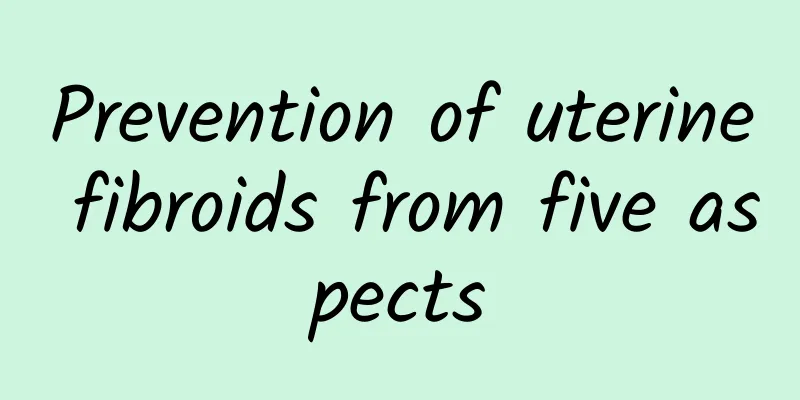What to eat for perimenopausal dysfunctional uterine bleeding

|
Perimenopausal dysfunctional uterine bleeding is a phenomenon that can have adverse effects on the patient's physical health, so you should go to the hospital for examination in time and take medication as prescribed by the doctor. At the same time, you should maintain a good diet and eat some blood-activating and blood-stasis-removing foods appropriately. It can improve the symptoms of menstrual blood viscosity or menstrual disorders, and have a certain auxiliary effect on the treatment of the disease, thereby reducing the symptoms of emotional tension and anxiety. The following will introduce what to eat for perimenopausal dysfunctional uterine bleeding. 1. Shiitake mushrooms: This food is rich in nutrients and vitamin C. Eating shiitake mushrooms regularly can promote metabolism, thereby improving the body's immunity, and has a certain auxiliary therapeutic effect on micro-menstrual uterine bleeding and endocrine disorders. You can eat some mushroom soup appropriately at ordinary times, because it is of high value and can relieve symptoms of physical discomfort. 2. Hawthorn: Hawthorn is a common food, and many people use it as a fruit. This food contains a certain amount of flavonoids, which has a certain anti-cancer effect and can promote blood circulation and remove blood stasis. If you have symptoms of physical discomfort, you can choose to eat hawthorn frequently to recuperate. You can choose to cook porridge with hawthorn or drink hawthorn soaked in water to relieve symptoms of physical discomfort. 3. Millet: Millet contains a lot of carbohydrates. Drinking some millet porridge can relieve mental tension and anxiety. It has a certain auxiliary therapeutic effect on the symptoms of physical fatigue, emotional instability, irritability, etc. that often occur during perimenopause. While treating the disease, you should pay attention to a diversified diet. You can eat some dairy products or soy products to relieve symptoms of physical discomfort. The above aspects introduce the treatment methods of perimenopausal dysfunctional uterine bleeding. This is a relatively common disease, and it will also have a certain impact on women's physical and mental health, so you should go to the hospital for examination in time, and choose diet therapy or drug therapy to improve the condition. In addition, during the treatment of the disease, you should maintain a good diet and avoid eating spicy foods, cold drinks or bitter melon. |
<<: What are the symptoms of perimenopausal syndrome
>>: How to treat postmenopausal hot flashes?
Recommend
What tests should be done for irregular menstruation
What kind of examinations are needed for irregula...
What should patients with Bartholinitis pay attention to?
The cause of Bartholinitis is mainly bacterial in...
What are the dangers of mild cervical hypertrophy
What are the dangers of mild cervical hypertrophy...
What is the reason for scanty menstruation?
Women's bodies are relatively weak during men...
Can patients with chronic cervicitis eat fish? Patients with chronic cervicitis should try not to eat these foods
Whether patients with chronic cervicitis can eat ...
Nourishing Medicinal Diet Suitable for Patients with Ectopic Pregnancy
Ectopic pregnancy is one of the gynecological eme...
What to do if you have poor physical condition after menopause at the age of 39
The physical condition of a 39-year-old woman aft...
What are the hazards of uterine fibroids? Who are the high-risk groups for uterine fibroids?
Understanding of uterine fibroid surgery: uterine...
15 minutes of non-stop aerobic exercise to boost metabolic rate
Many people feel that they can never gain weight ...
Is 150 minutes of exercise a week good for health? “Personalized activity indicators” become the new standard!
Are Taiwanese people not getting enough exercise?...
What is the cause of functional uterine bleeding and how to treat it
Dysfunctional uterine bleeding is abnormal uterin...
Can women with premature ovarian failure eat peaches?
Patients with premature ovarian failure can eat p...
Which hospital is good for treating congenital absence of vagina?
At present, the cost of medicines has increased s...
Experts explain two major treatment methods for ectopic pregnancy
Choosing the right treatment method for ectopic p...
What are the common symptoms of cervical precancerous lesions?
Cervical cancer is a common malignant tumor in wo...









